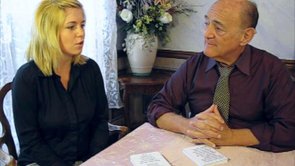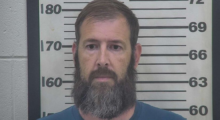 Stanley A. Terman, Ph.D., M.D., is CEO and Medical Director of Caring Advocates and the author of Peaceful Transitions: Stories of Success and Compassion; Plan Now, Die Later—Ironclad Strategy. He is also the creator of My Way Cards/Natural Dying Living Will Cards, a tool that generates Living Wills for Advanced Dementia as well as for other terminal illnesses. He spoke with SevenPonds about his work at Caring Advocates, an organization which seeks to educate, empower and advocate for individuals entering into the end-of-life, their proxy agent or their loved ones.
Stanley A. Terman, Ph.D., M.D., is CEO and Medical Director of Caring Advocates and the author of Peaceful Transitions: Stories of Success and Compassion; Plan Now, Die Later—Ironclad Strategy. He is also the creator of My Way Cards/Natural Dying Living Will Cards, a tool that generates Living Wills for Advanced Dementia as well as for other terminal illnesses. He spoke with SevenPonds about his work at Caring Advocates, an organization which seeks to educate, empower and advocate for individuals entering into the end-of-life, their proxy agent or their loved ones.
Antal: I noticed on your website that you had a link to a survey concerning dementia. What if the patient hasn’t prepared their directives and they reach the stage where they’re not of sound mind to do so?
Stanley: First of all dementia is very common, we all have a risk — by the time you’re 85 years old, one in three people of that age have dementia. So it’s very common. I suggest, if you haven’t completed your directives, or you’ve completed directives that don’t do such a good job of addressing dementia, does a good job on other diseases but not on dementia, I suggest gathering around you those people who know the patient very well, what they valued, what kinds of treatments they favored, what their opinions were. And these people can use a tool, the Natural Dying Living Will or My Way Cards, and you can imagine how would the patient answer these questions for themselves. If you get a good group, with parents, pastor, brother, sister and psychiatrist, so forth, that’s ideal, because certain biases may cancel each other out and you’re much more likely to get a more accurate estimate of what the patient may want, what decisions the patient might make for themselves, at that time. It’s also much less stressful making these difficult decisions as a group.
Antal: What do you suggest for patients who are in denial about their condition?
Stanley: Denial is common for all kinds of things in our lives, and it’s not always pleasant to think about what we’re going to be like when we reach the stage of advanced dementia, so people generally procrastinate and don’t do the advanced planning, which is like an ounce of prevention for a ton of suffering. One of the reasons I designed the survey that you found on my website is because people who take the survey are very likely to be motivated to do advanced planning. So interest is important, taking initiative. So if they take the survey they might find that not only do they contribute to our research, which we like, but they also might recommend the survey to loved ones or friends and might help motivate others to do the diligent advanced care planning that’s necessary, because the challenges of advanced dementia are so significant.
Antal: So to wrap it up, do you have any final thoughts or words of advice for our readers?
Stanley: Everybody will soon be affected by dementia. It’s an epidemic that will soon be called a tsunami. If you’re not affected directly because you don’t get dementia, then it’s likely to hit a grandparent or a parent or an aunt and uncle. We’re gonna go from five and a half million to thirteen million by the middle of the century. So if we learn about it now, then we can prepare for it, and if we prepare for it then everyone will be better off. Now there’s a lot of research that still needs to be done, and this is the kind of research that’s very difficult to prove, to find the magic, and this is at least three to five years off. So it’s not realistic to expect that there will be a medicine for this by the time your parents have dementia. But the worst, most cruel part of dementia can be addressed through advanced planning and documentation.

 How Do You Prepare for Dementia? An Interview with Stanley Terman (Part 2 of 2)
How Do You Prepare for Dementia? An Interview with Stanley Terman (Part 2 of 2)



 Funeral Home Owner Chris Johnson Spending Halloween in Jail
Funeral Home Owner Chris Johnson Spending Halloween in Jail
 Our Monthly Tip: Toast a Loved One with a Personalized Glass
Our Monthly Tip: Toast a Loved One with a Personalized Glass
 My Cousin’s Death Taught Me the Meaning of Life
My Cousin’s Death Taught Me the Meaning of Life














